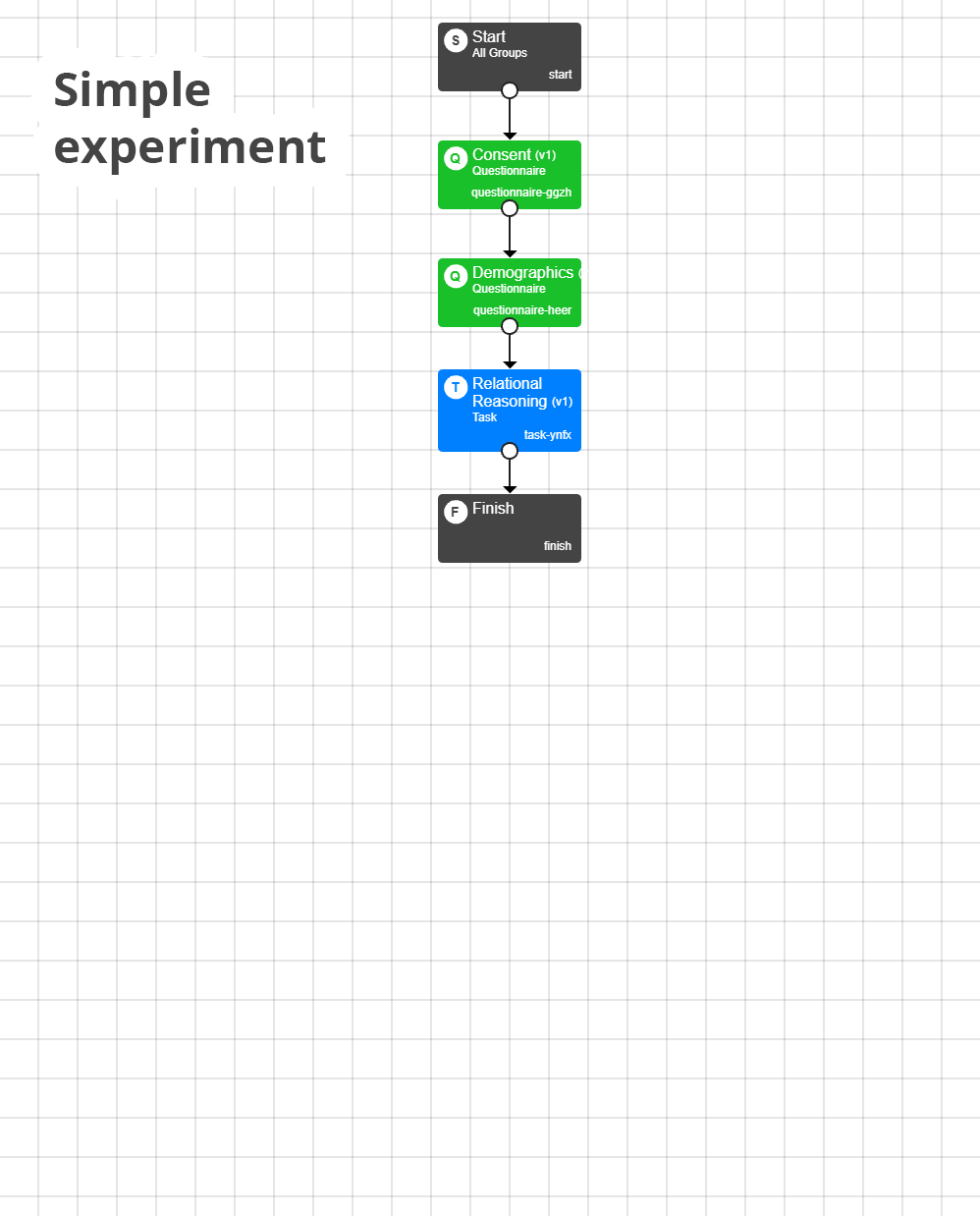Subscribe to Gorilla Grants
We regularly run grants to help researchers and lecturers get their projects off the ground. Sign up to get notified when new grants become available
Evaluate if your behavioural research paradigm will go online

When you think of an online study, what type of study comes to mind? A questionnaire? A simple reaction time task with images and a button click?
It’s easy to imagine how someone else can take a simple study online. But when you think about all the complexities of your own research, it’s harder to see how it could work.
Here at Gorilla we’re in the business of listening to what researchers want to create, and then developing the tools to make that research possible. I can’t promise that your research will work online, but I’d ask you to keep an open mind while I show you why there’s a very good chance it will.
Before I talk more about the tools, I’d to share with you some evidence that
The publications that cite Gorilla, will give you a peer-reviewed and concrete sense of what research can be taken online successfully.
We’ve got over 200 publications and pre-prints listed, with a lot of diversity. And that’s not even all of them.
Have a look through the list and see if there’s anything in your research area. If there is, take a look at their methods. Hopefully it will give you confidence that you can be successful too.
The second thing to do is to look at our Spotlight interviews. These are short interviews with a variety of researchers using Gorilla. Maybe there’s someone that does research a bit like yours?
Auditory: Kyle Jasmin carried out an auditory categorization experiment, investigating how we use pitch and duration to detect word emphasis.
Speech: Violet Brown was interested in why there are individual differences in susceptibility to the McGurk effect.
Linguistics: Matthew Hunt predicted that participants would have a greater bias towards selecting that they had heard an ‘-in’ variant of words ending in the morpheme ‘-ing’ when listening to swear words.
Motor: Jonathan Tsay used Gorilla to design a battery of cognitive tasks, investigating how the cerebellum contributes to cognition.
Memory: Jade Pickering investigated whether retrieval practice on a subset of integrated information would still be an effective learning strategy for all of the integrated information. Participants were asked to imagine three elements (e.g. spider — carrot — circus) interacting as vividly as possible, then did retrieval practice on a subset of pairs (spider — carrot).
Individual Differences: Nick Harp has been using Gorilla for a longitudinal study, in which he is tracking emotional bias throughout the COVID-19 pandemic. His results show that self-reported cognitive reappraisal tendencies are associated with a smaller shift toward negativity in our measure of emotional bias.
Developmental: Anqi Hu used Gorilla to examine the role of social interaction in word learning in school-aged children.
Education: Jessica Massonnié studies how classroom noise and distractions can impact on children’s learning.
Health: Juliet Usher Smith conducted a controlled online study with 1000 participants, looking at the effects of personalised lifestyle advice on cancer risk.
Cognition: Sahira van de Wouw used Gorilla to build an online version of the fiancée task (participants rate 90 faces, then encounter 8 faces in sequence and accept or reject each one as their date). Sahira aimed to replicate oversampling effects found in the lab version of the study.
Abnormal Psychology: Jen Pink analysed the relationships between different types of aggression and traits in psychopathy for 3‑factor and 7‑factor psychopathy models in order to compare the models.
Comparitive Psychology: Kirsty Graham and Cat Hobaiter used Gorilla for a large scale study investigating whether humans can understand the gestures primates use to communicate. Thanks to some excellent PR with coverage in The Atlantic and on the BBCs Life Scientific, they managed to recruit 15,000 participants!
We also sponsor BeOnline: a conference all about online research, with a particular focus on online research methods.
The speakers present their specific research methods and results, but you’ll also find a lot of generalisable information on how to ensure great data quality online and how to pilot your study successfully. You can find great talks on all kinds of subjects:
Auditory: Violet Brown was interested in how face masks affect speech perception. She recorded speech with 5 different face mask conditions (no mask, surgical mask, two cloth masks, and a transparent mask) and then played the clips to participants.
Education: Diana Laurillard explains how she worked with Gorilla to design a game that would help dyscalculia and early learners to understand the internal structure of numbers.
Developmental: Katherine Ellis is used to conducting face-to-face research with special populations, but she’s been learning how to move online since the start of the pandemic. Her research team has embarked on applying their previous face-to-face protocol, which includes eye-tracking, cognitive and behavioural assessments, to online methods, with neurotypical children, and children with genetic syndromes and intellectual disability.
Social Psychology: Dan Richardson at UCL uses Gorilla on a tablet to conduct experiments in person, in some very unusual places. Learn about the time he tested creativity from an underwater night club in Venice, or in a theatre in London, or during a live YouTube stream…
Behavioural Economics: Pasquale Rummo carries out research on how to promote healthy food purchases. He’s created an online grocery store website to investigate how financial incentives and nudges can be effective in online retail spaces.
Eye tracking: Gaia Sceriff is an early pioneer of online eye tracking. She discusses her journey toward webcam-based eye-tracking over the last three years, with pros, cons, and excitement ahead.
Mouse tracking: Alex Anwyl-Irvine is one of the developers who created MouseView.js, an alternative to eye tracking. Mouseview creates an occluding layer over a website, so that participants need to view their mouse to the area of the screen they want to view. Alex discusses the tool and the validation research he’s been working on.
Motor: Ryan Morehead and his lab have been moving motor control research online. They’ve created a gamified version of an interceptive timing task (intercept fruit with a fruit bat) and investigated how they can standardise and account for differences in participant’s equipment.
Health: Dimitris Koutoukidis tested effectiveness of an individual-level intervention and an environmental-level intervention on the saturated fat content of the shopping basket during an online shopping experiment.
Now let’s talk about the tools! Gorilla contains a variety of tools to support a wide range of research. The glue of Gorilla is our experiment tree, which is used to design the overall flow of the experiment.

The experiment tree makes randomisation, branching, counterbalancing, regrouping simple. These are often horribly complicated in code. Phew!
Within the tree, each node can be created in any one of our tools:
You can link as many different tasks from different tools as you like: the possibilities are endless.
Within each of those tools, there is a huge range of features. Gorilla is a bit like making a model: we give you the building blocks, you come up with endlessly creative ways to fit them together.
The flagship Gorilla tool is our Task Builder, which contains over 60 different zones (building blocks), including text and image zones, keyboard and response button zones, audio and video zones, eye and mouse tracking zones… Out of these you can create almost anything!
But, unlike with traditional building blocks, we also give you the ability to create your own pieces. In plainer terms, in most of our tools you can add snippets of JavaScript to upgrade the functionality we provide.
Most studies can be made within our tools, but if you want to extend the functionality that we provide, you can use scripting or the Code Editor and extend Gorilla to your needs.
The easiest way to get started is to select a study that you have done in the lab and replicate it online. This will help in two ways. Firstly, you have the protocol already clearly defined. So you aren’t going back to the drawing board and designing a new study. You’ve done the literature review, you’ve got the method, you’ve got the stimuli, so it’s simply a question of translating it for online use.
Secondly, once you’ve collected the data you’ll be able to compare the data to the data you collected in the lab. This will help you convince your own internal Reviewer 2 that the data quality online is good enough.
Most researchers are pleasantly surprised that, while online data may have higher variance than lab data, the effects are still there and the larger sample more than compensates.
Take Gorilla for a test drive! Creating an account is free and easy, so you can take some time to see what Gorilla is like: Go ahead, set up your first experiment!
We have a few different guides to help you get started:
“Massively impressed with Gorilla. Logged on for the first time yesterday lunchtime. Had a demo expt ready for students to adapt by 6pm the same day.” - Dr. Jenni Rodd - Senior Lecturer, University College London
Dr. Jenni Rodd is only one of the many people who love to use Gorilla.
We offer a lot of support options. Once you’ve signed up, check out our onboarding webinar. In 1 hour, we’ll show you round the ins and outs of Gorilla so that you can take your research online confidently. They’re live every other week, but if you can’t wait to get started don’t worry: There’s also an on-demand version.
Beyond that, we have lots of different ways we can help you:
Go ahead, give it a try. You’ll be surprised how easy and fun setting up your experiments is. And if you are still not sure wether it is going to be too technically difficult for you, then we have just the right piece of reading for you.
We regularly run grants to help researchers and lecturers get their projects off the ground. Sign up to get notified when new grants become available